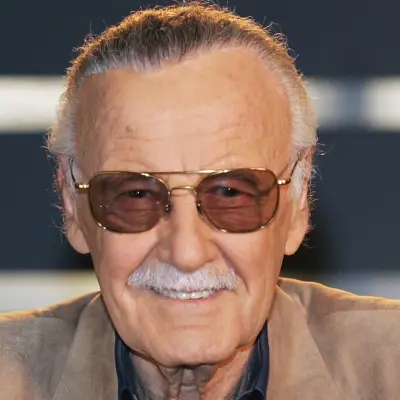How Stan Lee changed the entertainment industry forever
-

Batman, Superman and Wonder Woman made successful leaps from the comic book to the TV and movie screens without Stan Lee, as John DeFore points out. "But however successful (and sequel-tastic) 1978's Superman and 1989's Batman were, Hollywood didn't truly enter its love-it-or-loathe-it comic-book era until it embraced the characters Lee helped create in the 1960s, when he brought superpowers to the real world," says DeFore. "Like Steve Jobs and Thomas Edison, Lee was a creator with a canny enough sense of his persona (sorry, make that 'uncanny') to become the public face of work done by many people. He was not the sole inventor of Spider-Man, Iron Man, et al. — artist/writers Jack Kirby, Steve Ditko and others made invaluable contributions — but it does seem fair to give him much of the credit for the naturalistic world they inhabited and the ease with which they bounced into each other's storylines. The 'shared universe,' an idea that triggers dread among today's franchise-weary cinephiles, worked beautifully for Marvel Comics in the '60s." DeFore adds that Lee "helped birth the global geek culture that would eventually become our mainstream. Back in the '60s, Lee penned slangy, colorfully written editorials that treated the reader like a buddy. His exhortations ('Excelsior!') and behind-the-scenes talk involved readers in the process of creation. At its worst, this proprietary sentiment led to a world in which fanboys bully people off the internet for daring to mess with their childhood heroes. But at its best, back when comics/sci-fi fans were on the fringe instead of ruling the multiplex, it reminded readers that they weren't alone in their weird enthusiasms."
ALSO:
- What would pop-culture look like if Stan Lee never helped build Marvel?
- Stephen Colbert remembers Stan Lee: "Thanks for all the stories, Stan"
- Jimmy Kimmel shows off the drawing he made of Stan Lee when he was 7
- Watch Jimmy Fallon's superhero sketch he did with Stan Lee on Late Night
- How Lee broke down the barriers between audience and artist
- Lee's 1968 anti-racism column goes viral
- The shared universe was one of Lee's biggest innovations
- Read more celebrity tributes: From Finn Jones, Millie Bobby Brown, Netflix and the U.S. Army
TOPICS: Stan Lee, Jimmy Fallon, Jimmy Kimmel, Stephen Colbert, Marvel
